Differences Between Copyright And Trademark: Copyright and trademark are two different heads under which intellectual property rights are protected. Copyright is the right of a creator of an expressed intellectual idea to determine who may copy, publish or distribute his work. The right operates to entitle the owner to use his intellectual work to the exclusion of others. It also entitles the right owner to give license as to the use of such work. Various countries have laws that protect intellectual works to the extent that it benefits the owner, and in such a manner that a balance is placed on the rights of the owner and the dissemination of information in the society. In Nigeria, copyrights are regulated by the Copyright Act of 2023.
Copyright protects intellectual efforts. Thus, there must be skill and labour exerted in the creation of the work. However, the law only covers rights that have been expressed by any means in a permanent form. In other words, mere ideas are not protected. See section 3 of the Copyright Act 2023.
Recommended: Hardest Musical Instruments To Play and Learn
The scope of copyright is quite wide. Copyright therefore can arise from the following eligible subject matters: literary works, musical works, artistic works, audiovisual works, sound recordings and broadcasts. This is the import of section 2(1) of the Copyright Act 2023. The infringement of copyright entitles the copyright owner to an action for infringement from which remedies such as damages, injunction, account for profit, delivery of possession and other remedies may be awarded.
The laws regarding copyright substantially have the same purpose and content, although some jurisdictions do differ slightly. Generally, copyright does not require registration for the rights to activate. But in some jurisdictions, registration is a prerequisite to the operation of the rights.
Trademark on the other hand, specifically deals with marks which are duly registered and used or proposed to be used in relation to goods and in the course of trade, for the purpose of indicating the relation of the goods and the person who has proprietary rights over the mark. This is sufficiently defined in section 67 of the Trademarks Act.
The protection given by trademarks is quite similar to that of copyright. But of course, there are distinctions between both heads of intellectual property. Trademarks are specifically interested in registered marks which are used or proposed to be used in a person’s line of business. The focus of trademarks is on business. Thus, its infringement qualifies as an economic tort, and the proprietor of the mark is entitled to an action for infringement from which remedies such as damages, account for profit, delivery of possession, injunction and other orders may be made in respect thereof.
Apparently, it has a striking similarity with copyright. Trademark specifically has dual purposes which are, to individualise the goods of the mark owner; and to distinguish the goods of the mark owner from others in the market.
Copyright and trademarks are both fields of intellectual property. For the purpose of this discourse, the scope shall be limited to Nigerian jurisdiction in order to have a clear cut on the differences between copyright and trademark.
Recommended: How to become a successful lawyer
Top 6 Differences Between Copyright And Trademark
The following are the differences between copyright and trademark:
1. Eligibility or characteristic required for protection: The eligibility criterion for the protection of copyright differs from that of trademarks. Thus, copyright covers literary works, musical works, artistic works, audiovisual works, sound recordings and broadcasts. This list is exhaustive. Therefore, any subject matter which does not fall under the above-listed category cannot be protected by copyright.
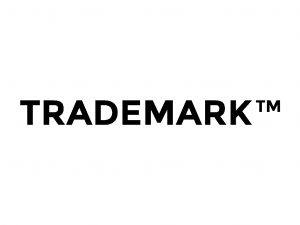
On the other hand, trademarks cover a very wide scope. By section 67 of the Trademarks Act, mark includes a device, brand, heading, label, ticket, name, signature, word, letter, numeral or any combination thereof. The use of the term ‘include’ by the section entails that the list of what constitutes a mark is not exhaustive. Thus, any mark is eligible to be protected. However, such marks must pass the eligibility requirement provided in section 11 of the Trademarks Act which forbids the use of scandalous and indecent marks and any mark which is likely to deceive the market as to the source of the product.
Recommended: Countries with the highest level of prostitution
2. The requirement of registration (formality): In Nigeria, there is no requirement of formality for copyright to accrue to an intellectual property owner. See section 4 of the Copyright Act 2023 which provides that there shall be no formality for the eligibility of copyright protection. In essence, copyright in Nigeria does not require registration.

On the other hand, trademarks right in Nigeria cannot accrue in the absence of registration. By section 3 of the Trademarks Act, only proprietors of registered marks shall be entitled to institute an action for the prevention of infringement or recovery of damages in respect of an infringement. The registration of trademark is a notice to the whole word that such right exists and inures in the owner. However, an unregistered trademark can still find remedy under the common law tort of passing off.
Recommended: Countries with the best education system
3. Connection to business: By section 67 of the Trademarks Act, trademarks are required to be used or be proposed to be used in connection to a business or trade. This is a principal characteristic of trademark.
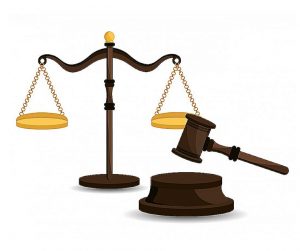
This is not necessarily so for copyright. In fact, copyright does not directly refer to business or trade. Although such copyrights do of course relate to businesses, it is not a requirement, and it need not necessarily be so connected.
4. The purpose: Copyright gives the owners of the rights exclusive control over their works which may be literary works, musical works, artistic works, audiovisual works, sound recordings and broadcasts. It also entitles the right owners to grant licenses to others on such terms and conditions as they deem suitable.
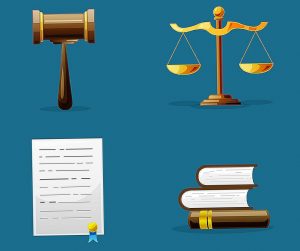
This is also similar to the rights accruable to trademarks proprietors. However, the original purpose of trademark is to identify the goods of the owner and distinguish it from that of others in the market by the use of distinctive signs, symbols, letters, words, and so on. This is referred to as the dual purpose of trademarks.
Recommended: How To Become a Successful Crypto Trader
5. Protection: Copyright protects only ideas that have been expressed in a permanent and visible form. Thus, it does not protect the intellect or idea itself. Such ideas must have been fixed in tangible forms such as music, books, artistic works, and so on.
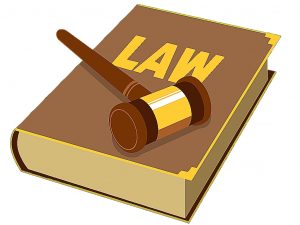
It also protects the rights of performers who derive their rights from that of the originator. On the other hand, the protection of trademark is focused on the fact that people should not be allowed to use their marks in a manner that is likely to deceive or confuse people as to the origin of the goods.
6. Duration of protection: The right of a copyright owner subsists throughout his lifetime and extends to 70 or 50 more years, as the case may be, after his death.
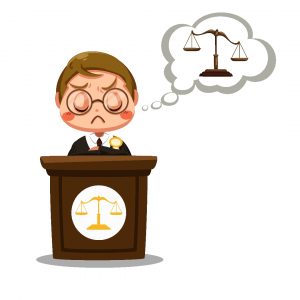
On the other hand, the duration of trademark protection is quite determinable but can last till eternity, as long as the owner keeps up with the renewal of his licence. Thus, the right of a trademark owner will exhaust if he does not renew it upon expiry.
Recommended: Countries With The Most Billionaires In The world
Conclusion
The Nigerian laws regarding intellectual property rights are arguably modeled in a manner as to encourage innovations and the exertion of skill and labour. These protections offered to various intellectual properties serve as a motivating element to others who may wish to acquire such enviable rights, to actually put in the effort. The distinctions between these different headings must be well appreciated in order to know the extent of one’s rights as it relates to dealings with other people’s intellectual properties.

Edeh Samuel Chukwuemeka, ACMC, is a lawyer and a certified mediator/conciliator in Nigeria. He is also a developer with knowledge in various programming languages. Samuel is determined to leverage his skills in technology, SEO, and legal practice to revolutionize the legal profession worldwide by creating web and mobile applications that simplify legal research. Sam is also passionate about educating and providing valuable information to people.